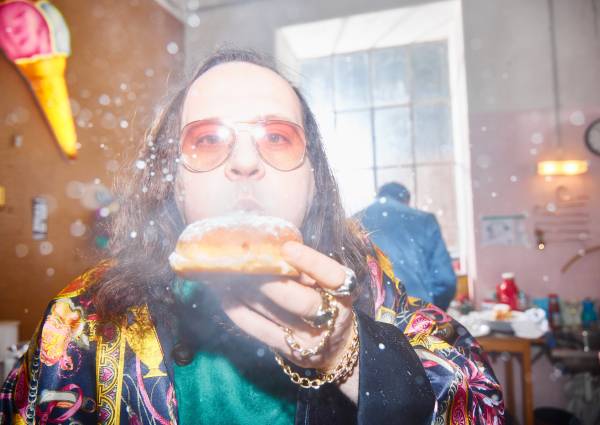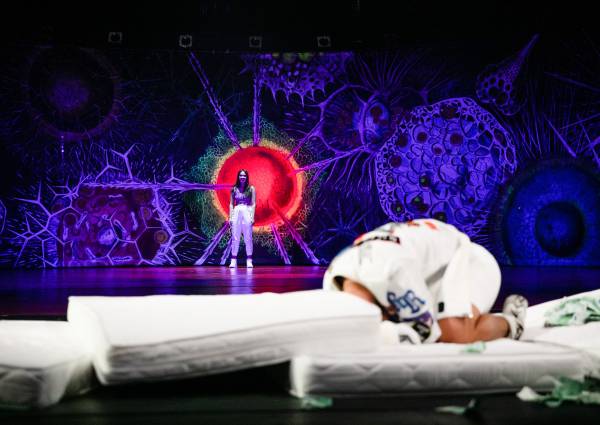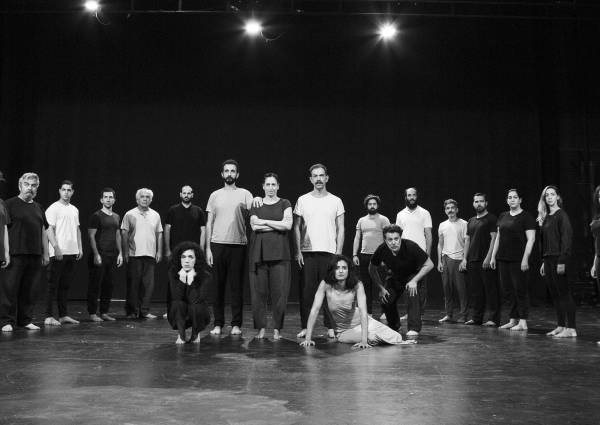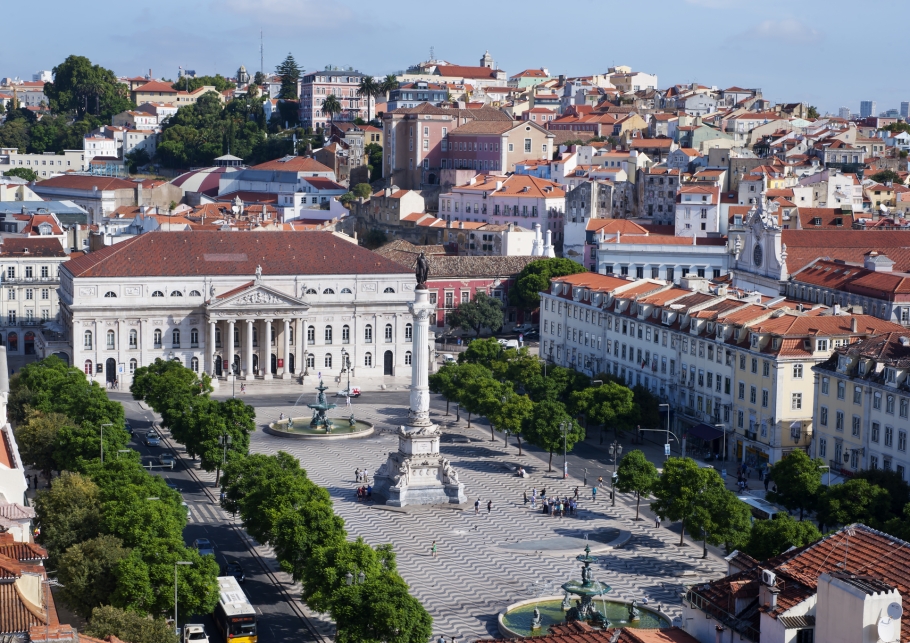For Pedro Penim, the newly appointed Artistic Director of Teatro Nacional D. Maria II, sustainability is about “a 360° approach – being aware of everything that concerns the theatre in terms of social, political and environmental challenges, and our responsibility towards those issues”.
He sees sustainability as “understanding the function of a theatre on a more symbolic level – as an institution setting the example”. That’s how D. Maria II has approached the concept in recent years, focusing a lot on its work with different communities and accessibility.
Rui Catarino, previously a member of the board of the Teatro Nacional D. Maria II who has now assumed the presidency of the organisation, explains that there was already an awareness of environmental sustainability in the theatre.
For him, ETC acts primarily as an accelerator.
“The initiatives that ETC has been promoting – the ETC Sustainable Action Code for Theatres, the Fundamental Course, and the Ki Futures Programme – were really enlightening, driving us to become a lot more conscious and bring sustainably in a formal and institutionalised way into the structure of our theatre – much like we do with procurement,” he says.
The Ki Futures programme in particular helped the theatre to put all the single actions into a proper plan, with concrete milestones and goals. “We got the information in a structured way, a context to bring to our colleagues, and we also have peer pressure: if others can work this way, so can we. This has created a context that is a lot easier to navigate in and helped us put the pieces of the puzzle together,” Rui adds.
Both Pedro and Rui are committed to continuing and enhancing the work of their predecessors that has marked a new era for the National Theatre. They recently started piloting a ‘Green Team’, a key player in deploying a strategy for the future of the theatre, considering all areas from programming to maintenance and touring. “It has to do with people,” explains Rui, “people that inspire you and facilitate access to information, who lead the way. We need people that really push forward the boundaries of what we can do.” For him, change has to do “with connecting and realising that most of what we need to do has been considered by other people and we are not isolated islands.”
Piloting the Green Team has been entrusted to Vera Azevedo, who works in the theatre’s archives. She will coordinate the work of colleagues from different theatre departments. Both Vera and Rui stress that the Ki Futures course has enabled them to be much more in touch with the several components they we have to address and different methodologies. Digitalisation practices are also at the heart of their sustainability work, Vera adds.
The theatre will be undergoing major construction work in the year to come. Although sustainability was not the main driver for this, sustainability concerns are being taken into consideration.Their main mission during the following year is to shift towards a more sustainable company model, fully integrating social, environmental, and economic considerations into their strategic and operational plans, so that sustainability “becomes second nature, irrespective of who will be the artistic director or the person in charge”. Pedro adds that this is now a commitment for the theatre that wants also to serve as an example for other (public) institutions in Portugal and beyond.
You know when you are not fulfilling your sustainability obligations. It’s a choice. If you choose not to do them, you are making a consciously bad choice.
Pedro Penim is Artistic Director of Teatro Nacional D.Maria II.
Rui Catarino is President of the Executive Board at Teatro Nacional D.Maria II.
Vera Azevedo is head of the theatre’s Green Team at Teatro Nacional D.Maria II.
This article is part of the ETC Publication Our Stories of Change, which is a new series to illustrat the effect and impact of our current programme of activities: TRANSFORMATIONS - Recharging European Theatres and Audiences in a Post-Covid World. The article was written by Matina Magkou, Researcher for On The Move.
Our Stories of Change
-

Volume 2 of 'Our Stories of Change' is Out!
Get ready to immerse yourself in stories from ETC colleagues -

A Bet on the Future
Schauspielhaus Graz on how participating in the ETC Artist Residency Programme has helped them remain open to new ideas, people and audiences -

Beyond Nuts and Bolts
THOC on how ETC’s Sustainability Courses have shifted mindsets and organisational thinking at their theatre



